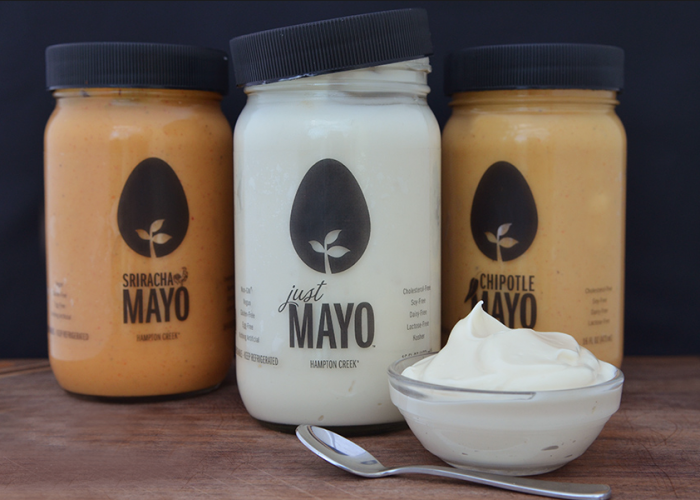We seem to be learning all the time and subsequently developing new strategies in order prevent food allergies developing in early childhood, and one of the more recent suggestions put forward, was to to consider exposing your child to many different foods as early as it is possible to do so.
Vegan mayo that does not contain eggs is a quality product from Hampton Creek and an example of how you can enjoy many different foods even if you have certain allergies, but could it be possible to prevent these allergies developing in the first place, if you expose your child to a rainbow of flavors and ingredients at an early age?
Get them started early
At about seven months, you will normally have already introduced your baby to solid foods and will probably want to introduce them to some more new taste experiences.
Not that long ago, the general advice would have been that trying your child with some scrambled egg for example, would not be recommended at such an early age, but attitudes and advice changes as a result of extensive food studies, and it is now suggested that it is fine to try them with some scrambled egg if you want to.
The sort of basic staples that are normally introduced to a baby in the modern age when they are somewhere between four and six months, include fruit and vegetables and rice or oat cereal, amongst others.
The thinking behind this advice, is that according to a study carried out by the American Academy of Allergy, Asthma and Immunology, (AAAAI) if you expose your baby to more foods at an early stage in their life, this could be a better way to prevent food allergies developing.
The conclusion drawn from this study and some others like it, is that a gradual and early exposure to a variety of foods is more likely to prevent food allergies rather than cause them.
Updating guidelines
About fifteen years ago, The American Academy of Pediatrics issued guidelines that stated infants should not consume milk until they were at least 12 months old and eggs were off the menu until they were at least two years old.
The list of guidelines included the advice that children should not consume tree nuts, peanuts, shellfish and other fish, until they were at least three. As it was subsequently established that there was no specific evidence that supported the suggested timelines, the guidelines were updated to reflect this change of stance, back in 2008.
Unfortunately, this did not really help to bring as much clarity as parents wanted, and there has only recently been some more specific guidelines issued by the AAAAI as well as the American Academy of Pediatrics, which states that foods such as fruits, oat cereal, rice and vegetables can be introduced in your baby’s diet when they are between four and six months of age.
Proceed with caution
It should go without saying that as a parent, you will undoubtedly want to take it slowly when introducing new foods to your child and you also have to be vigilant when it comes to being aware that some foods could present a choking hazard, like peanuts for example.
Peanuts are an interesting food to talk about when it comes to allergies, as some people clearly have a definite allergic reaction to this type of food and you should certainly proceed with caution when considering the idea of feeding your child some, at the right age for them to cope.
Some studies have found that children who were not fed peanut butter were in some cases, up to ten times more likely to develop a peanut allergy than if they were offered it. If you already have a child that has a peanut allergy, it should be noted that this is likely to be present in your other children too, so think about the circumstances and suitability of introducing certain foods, despite a general relaxation of certain advice and timeframes.
After six months
Updated advice across various bodies is that not before four months, but preferably once your child is about six months old, you can start to introduce a range of different solid foods to them.
iron-rich foods are a good starting point, which can be combined with continued breastfeeding. Infants can be given allergenic solid foods which includes cooked egg, dairy and wheat products, in the first year of their life, as this may actually help to prevent them from developing an intolerance and allergies at a later stage.
This advice is fundamentally different to recommendations in the past, but various studies are supporting the line of thinking that early exposure to certain foods can help to prevent allergies developing.
Libby Parkinson is a young Mom who, as well as learning how to look after a baby, also had the added complications of dealing with a baby who had food allergies. She writes about alternative recipes and give general advice and support regarding food allergies whether kids or adults are dealing with it.








Janet W. says
This is great information! Food allergies definitely seem to be on the rise these days.